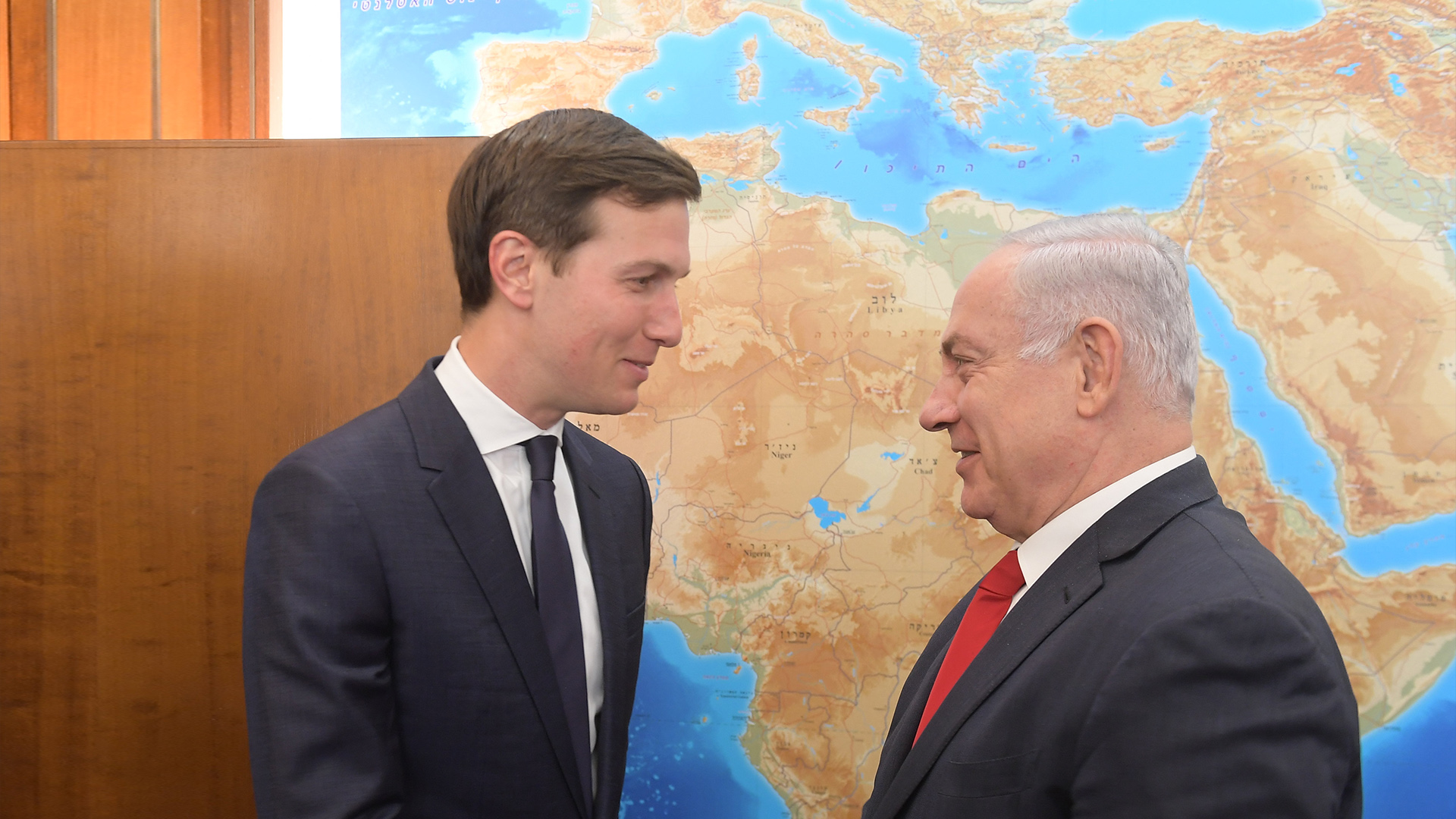
August 23, 2017
CNAS Press Note: Kushner’s Visit to the Middle East
White House Advisor Jared Kushner is currently in the Middle East, meeting with leaders from the United Arab Emirates, Jordan, Qatar, Egypt, and Saudi Arabia. As Kushner heads to Israel, Center for a New American Security (CNAS) Middle East Security Program Director Ilan Goldenberg has written a new press note previewing the meetings with Israeli Prime Minister Benjamin Netanyahu and Palestinian President Mahmoud Abbas.
The full press note is below:
Today, an American delegation led by Jared Kushner arrives in Israel for meetings tomorrow with Prime Minister Netanyahu and President Abbas. The purpose of the visit is to continue to move forward the Trump administration’s effort to revive Israeli-Palestinian peace negotiations. Kushner, Deputy National Security Advisor Dina Powell, and Special Envoy Jason Greenblatt have been touring the region this week in an effort to generate regional support for the Trump administration’s peace efforts.
The administration’s early steps, most notably the president’s trip to the Middle East in May, received positive reviews in the region. But these were mostly symbolic steps meant to set the table for future initiatives. Since then, American leverage over the parties has slowly started to erode. The challenge now for the Trump administration is to move beyond symbolism and make concrete progress – or risk squandering the early goodwill that it cultivated.
This will prove exceedingly difficult. Prime Minister Netanyahu and President Abbas truly do not like or trust each other, and both are risk-averse leaders unlikely to take bold steps for peace. Moreover, all the key players are facing their own challenges at the moment, which complicates the possibility of a breakthrough. In Israel, Prime Minister Netanyahu is beholden to a right-wing coalition likely to block any significant concessions to the Palestinians. He is also under increasing pressure from mounting investigations of alleged malfeasance. The Palestinians are absorbed in their own internal jostling, both inside Fatah over questions of succession and between Fatah and Hamas. They are also increasingly frustrated with the Trump administration’s refusal to publicly criticize Israeli settlements or commit to the two-state solution. The Arab states, which the Trump administration is counting on to create incentives for the parties to move closer together, are distracted by internal divisions. These divisions significantly escalated in June with a move by Saudi Arabia, the United Arab Emirates, and Egypt to isolate Qatar. And all of the parties in the region are watching the internal political chaos inside the United States, which is further eroding the administration’s credibility in how it deals with foreign actors.
For these reasons. a major breakthrough is unlikely. But at a minimum, the administration must demonstrate some small, meaningful steps soon if it is to build any momentum for its peace initiative.
Goldenberg is available for interviews. To arrange one, please contact JaRel Clay at jclay@cnas.org or (202) 457-9410.
